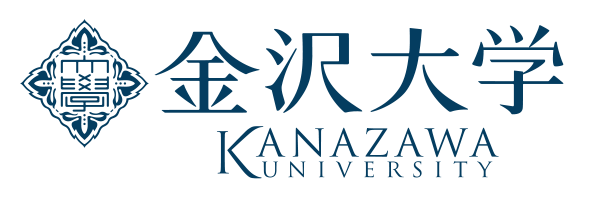令和4年 3月4日
新学期に向けて感染対策の徹底を
~ 自粛から共生への転換を目指して ~
学生の皆さん
この2年間に新型コロナウイルス感染症に関する多くの科学的知見が得られ,対策も随時示されるようになってきました。例えば第6波の主流であるオミクロン株は,デルタ株等に比べて重症化リスクは低い一方,感染力は極めて強いことが明らかです。そしてワクチン接種の効果は日数が経つと低下(6か月で約半減)するが,追加接種でその効果が十分に回復することも分かっています。
厚生労働省の専門家会合は,全国の新規感染者数の減少は緩やかで,しばらくは感染者数が高いレベルのまま推移することが予想されると指摘しました。今のところ兆候はないものの感染力がより高い「BA.2」系統ウイルスに置き換わって再び増加に転じる可能性や,年度末を迎えて人との接触機会が増えることにも注意が必要と警告しています。
世界では,多くの国が警戒しながらも経済活動との両立のため徐々に規制を緩和する方針をとりつつあります。例えば,アメリカではオミクロン株の感染が広がっていた今年1月に,新型コロナウイルスと共存する戦略を考えるべきだという議論が始まりました。そしてアメリカ医師会発行の学術雑誌には「ニューノーマル(新しい日常)」に向けた戦略の必要性を訴える論文が発表されました(※1)。論文では,新型コロナウイルスに対していわゆる「ゼロコロナ」戦略は現実的ではなく,ワクチンや治療薬等によって,どこまで感染者や重症者,死者が減れば社会として受け入れられる可能性があるのか,インフルエンザ等を参考に議論し,そのレベルを超えた場合にどのような対応を行うのか,緊急時の感染対策や医療機関の病床数,それに人員の配置等を計画すべきとしています。
我が国のオミクロン株の水際対策について,政府の3月から段階的に緩和する方針に基づき,2月21日に文部科学大臣は「3月からの新たな水際措置に伴う外国人留学生の入国について」のメッセージを発出し,今月から大学等の管理の下,待機期間が短縮される等の形で,観光目的以外の外国人の新規入国が認められ,1日当たりの入国者数の上限を引き上げられる新たな水際措置の方針が示されました(※2)。これにより在留資格の事前認定を受けながら,渡日できていない外国人留学生への朗報になりました。
本学でも2年間にわたり,ほとんどの留学生は渡日できませんでした。一方,海外留学する学生も以前より大きく減少し,今年度は約40名程度にとどまっています。本学へ留学を希望しながら入国できずにいる外国人の方が1日も早く渡日できるよう,また本学学生がより多く海外へ留学できるよう,できる限りの支援を続けていきます。
真のグローバルキャンパスとは多様な言語や文化が日常的に交わることであり,多くの学生が相互理解を深める機会を増やすことの重要性に鑑み,本学はグローバルキャンパスとしての様々な整備を進めるとともに,留学生を積極的に受け入れてきました。そのような本学の本来の姿を取り戻すために,4月からの新学期ではキャンパスに全ての入学者・在学者を迎え,これまでと同様に安心安全を最優先としつつ,順次制限を緩和する方針とし,自粛から共生への転換を目指します。しかし,この方針の実現には本学の感染対策が社会から信頼されることが必須であり,皆さんの自主的な感染対策が不可欠です。春期休業中も感染対策を徹底し,全員が共に学べる新しい環境を創っていきましょう。
※1 A National Strategy for the "New Normal" of Life With COVID, JAMA.
2022 Jan 18; 327(3) : 211-212.
※2 文部科学省web site : https://www.mext.go.jp/b_menu/daijin/detail/mext_00243.html
March 4, 2022
Thorough infection control measures for the new academic year
~shift from self-restraint toward coexisting~
YAMAZAKI Koetsu
President, Kanazawa University
Dear Students,
Over the past two years, we have acquired a great deal of scientific knowledge on COVID-19 and countermeasures have been presented from time to time. For example, the Omicron variant, the dominant variant of the 6th wave, has a lower risk of severe illness than the Delta and other variants, but is extremely infectious. It has also been found that, although the effectiveness of vaccination is waning over time (decreases by about half in six months), additional vaccinations can restore the effect sufficiently.
The expert meeting of the Ministry of Health, Labour and Welfare (MHLW) indicated that the decline in the number of new cases of infection nationwide is slow, and is expected to remain at a high level for a while. They warn, although there are no signs at this point, there is a possibility that displacement to more infectious 'BA.2' could increase the number of new cases again. They also alert that we have more opportunities for contact with people toward the end of the academic year.
Around the world, many countries opt to ease restrictions gradually with caution in order to balance economic activities. For example, in the USA, discussions on the need for strategies to coexist with COVID-19 began in this January. It was when the Omicron variant was spreading. An article that stressed the need of strategies for a ‘new normal’ appeared in a journal published by the American Medical Association (*1). In the article, it says the so-called 'zero corona' strategy is not realistic for COVID-19. It is necessary to consider if our society could accept COVID-19 at any point of decline in number of infected people, seriously ill people and deaths by using vaccines and therapeutic medicine, and to make plans for emergency infection control measures, the number of beds in medical institutions and staff arrangement for when it exceeds the acceptable level by using examples of other viruses such as influenza.
Prime Minister of Japan announced new border measures that will allow new entry into Japan of foreign nationals except for tourists, shorten the self-quarantine period under the supervision of universities, etc., and raise the maximum number of foreigners permitted to enter Japan each day. In accordance with the phased relaxation of Japanese border measures from March, the Minister of Education, Culture, Sports, Science and Technology delivered a message regarding international students’ entry into Japan on February 21 (*2). This is good news for international students who have been granted pre-qualification of status of residence but have not been able to enter Japan. For past two years, most of prospective international students were also unable to enter Japan at Kanazawa University. On the other hand, the number of students studying abroad has decreased significantly, too. Only about 40 students are studying abroad this year. We will continue to support as much as possible so that international students who have been patiently waiting to study at KU can come to Japan as soon as possible, and so that more of our students can study abroad.
A truly global campus is the one where diverse languages and cultures interact daily. In consideration of the importance of increasing opportunities for many students to deepen mutual understanding, Kanazawa University has been actively accepting international students as well as improving as a global campus. To restore the primary purpose of our university, we will welcome all new and current students to the campus in April. We gradually relax restrictions and aim for a shift from self-restraint to coexistence while putting safety and security the highest priority as it has been. For this policy, it is essential that our infection control measures are trusted by society, and your voluntary infection control measures are necessary. Let’s continue to take thorough infection control measures during the spring break and create a new environment where everyone can learn together.
*1 A National Strategy for the "New Normal" of Life With COVID, JAMA.
2022 Jan 18; 327(3) : 211-212.
*2 MEXT web site : https://www.mext.go.jp/en/news/topics/detail/mext_00076.html




 PAGE TOP
PAGE TOP